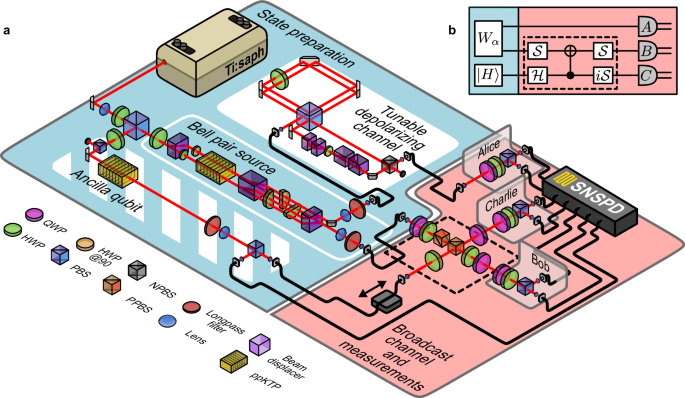Phys.org April 15, 2024
Nonlocality is crucial for device-independent technologies like quantum key distribution and randomness generation. It quickly deteriorates in the presence of noise, and restoring nonlocal correlations requires additional resources incurring a significant resource overhead. An international team of researchers (Australia, France, USA – NIST, Boulder, CO) experimentally demonstrated that single copies of Bell-local states, incapable of violating any standard Bell inequality, could give rise to nonlocality after being embedded into a quantum network of multiple parties. They subjected the initial entangled state to a quantum channel that broadcast part of the state to two independent receivers and certified the nonlocality in the resulting network by violating a tailored Bell-like inequality. They obtained these results without making any assumptions about the prepared states, the quantum channel, or the validity of quantum theory. According to the researchers their findings have fundamental implications for nonlocality and enable the practical use of nonlocal correlations in real-world applications, even in scenarios dominated by noise… read more. Open Access TECHNICAL ARTICLE

Schematic overview of the experiment. Credit: Nature Communications volume 15, Article number: 3112 (2024)